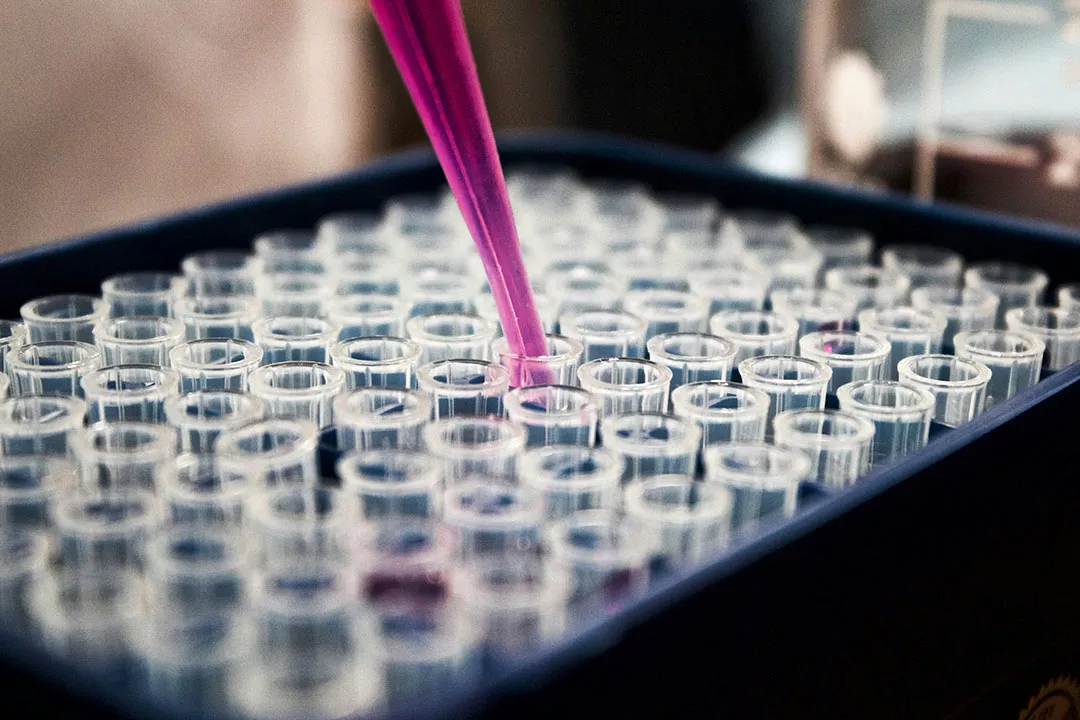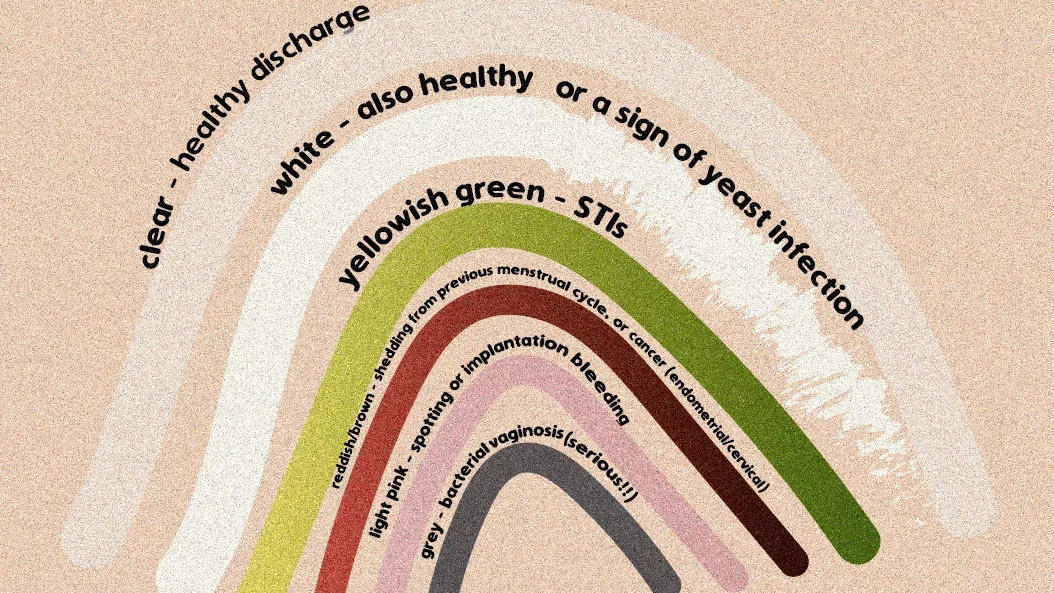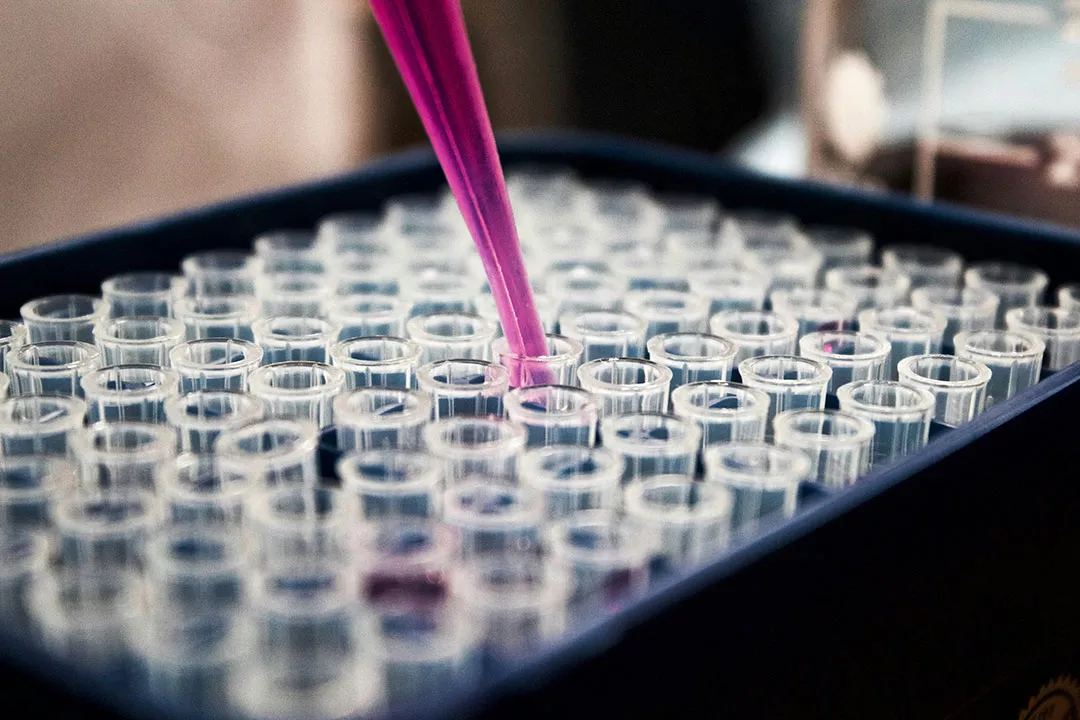Causes of Vaginal Infection (Vaginitis): What You Need to Know?
2260
Vaginitis refers to inflammation or irritation of the vagina, often caused by bacteria, yeast, or other irritants.

Causes of Vaginal Infection (Vaginitis): What You Need to Know?
Vaginitis is any inflammation of the vagina. Inflammation can be a sexually-related infection or a non-sexually-related infection.
Vaginitis can happen to women of all ages. One-third of women may suffer from vaginitis at some point in their lives.
Vaginitis occurs when the vaginal walls become inflamed due to an irritant disrupting the natural balance of the vagina.
If you have symptoms or want to discuss sexual health, you can consult with doctors at the PULSE Clinic. To book an appointment, please email us at info.bkk@pulse-clinic.com or contact us on your preferred platform.
![]() +66 65 237 1936
+66 65 237 1936  @PULSEClinic
@PULSEClinic ![]() PulseClinic
PulseClinic
What is vaginitis?
The word "vaginitis" refers to conditions that cause inflammation or discomfort in your vagina. Depending on the reason, you may experience itching, a burning sensation when peeing, or foul-smelling vaginal discharge.
Vaginitis can be caused by bacteria, fungus, parasites, or other creatures, as well as chemicals found in creams or personal care products. Vaginitis can be caused by sexually transmitted infections (STIs) or vaginal dryness as a result of low estrogen levels. Vaginitis is quite prevalent, affecting virtually everyone with a vagina at least once in their lives.
14.jpg)
You generally don't think about your vaginal health unless something seems odd. Then your vagina is all you can think about. Itching, burning, soreness, swelling, and irregular discharge all indicate that something is wrong. While frequent check-ups are vital for your vaginal health, you should also consult a healthcare specialist if something doesn't feel right.
There are several different causes of vaginitis, each with its own set of symptoms and treatment options.
Which are the most common types of vaginitis?
The most prevalent kinds of vaginitis include:
- Bacterial vaginosis.
- Yeast infections.
- Trichomoniasis (Trich)
- Genital Herpes
- Genitourinary syndrome of menopause (atrophic vaginitis).
09.jpg)
Bacterial vaginosis (BV)
Bacterial vaginosis (BV) is the most frequent kind of vaginal inflammation. Bacterial vaginosis arises when bacteria that naturally exist in your vagina overgrow for whatever reason, resulting in a bacterial imbalance. The most typical indication is discharge with a fishy odor.10.jpg)
Yeast infection
Yeast infections are the second-leading cause of vaginitis. It is caused by an overgrowth of the fungus Candida.Candida generally lives in your vagina without problem, but when you have a yeast infection, candida disrupts the balance of other "good" bacteria. It may cause burning, irritation, and changes in your vaginal discharge.
Trichomoniasis
Trichomoniasis (trich) is a sexually transmitted infection caused by the microscopic single-celled parasite Trichomonas vaginalis. When this bacterium enters your vagina, it can produce unpleasant symptoms such as itching and foul-smelling discharge. Sexual intercourse is often the mode of transmission for this form of vaginitis.
Genital Herpes
Genital herpes-related vaginitis occurs when the herpes simplex virus (HSV) triggers inflammation of the vaginal tissues, leading to symptoms that overlap with both genital herpes and vaginitis. In this case, the presence of HSV can cause painful sores or ulcers on the vaginal walls, which may result in additional irritation and inflammation. This can exacerbate typical vaginitis symptoms such as itching, burning, and unusual discharge.03.jpg)
Non-infectious related Vaginitis
This form of vaginitis develops when you have an allergic reaction to vaginal sprays, scented soap, douches, or spermicides. The skin around your vagina is also susceptible to feminine products like wipes, sexual lubricants, detergents, and fabric softeners.
Atrophic Vaginitis
Atrophic vaginitis (genitourinary syndrome of menopause) is a kind of vaginitis caused by a reduction in estrogen levels. It makes your vagina thin and dry. This occurs largely during perimenopause and postmenopause, which can be natural or surgical (ovaries removed).
You may also feel comparable sensations if you are nursing (chestfeeding) or have recently given birth (postpartum) owing to hormonal changes.
What are the signs of vaginitis?
The symptoms of vaginitis vary according to the kind. Some may cause no symptoms at all. Multiple types of vaginitis can occur concurrently.
However, some signs and symptoms can appear in several types of vaginitis. This includes:
- Changes in the color, texture, or scent of your vaginal discharge.
- Vaginal itch, burning, or irritation. Your vulva may even seem and feel enlarged.
- Dysuria is the sensation of pain during urinating.
- pain during intercourse or when inserting a tampon.
When you don't have your period, you may experience light bleeding or spotting.
Your vaginal discharge contains various signs that may reveal the sort of vaginitis you have. Pay attention to what you see in your underwear and when you wipe. Infection can be identified by a discharge that has a strong odor, is clumpy, or is frothy. Your discharge should be transparent, white, or off-white. A discharge that appears green or yellow may also indicate an infection.
Add us on Line and stay in touch.
PCR 28 for Vaginal Infection (Vaginitis)
PCR 28 can provide comprehensive testing for 28 pathogens that can be related to vaginal infections and other related symptoms. PCR stands for Polymerase Chain Reaction; it is also called Nucleic Acid Amplification Test (NAAT) and is a modern molecular technique used to detect a particular pathogen (virus or bacterium) in a specimen of blood, body fluid, or other tissue. This technique detects virus or bacterial DNA. The nucleic acid amplification test (NAAT) is the recommended testing method for Chlamydia, Gonorrhoea, Ureaplasma, Mycoplasma, and Trichomonas, among other infections. It has very high specificity (higher than 99.5%) and higher sensitivity and accuracy than culture (the old diagnosis technique). In both men and women, painless urine PCR (yes, you just have to pee) and genital PCR were significantly more sensitive than culture. It can detect infection, whether the organism is dead or alive! This is mostly done in first-world countries and in medical schools.
Polymerase Chain Reaction (PCR) for Vaginal Infection (Vaginitis) can be used to identify vaginal infection (Vaginitis) based on its genetic characteristics. Specific genetic markers or gene targets associated with vaginal infection (vaginitis) can be amplified and analyzed to confirm their presence.
All PULSE clinics in Thailand provide the most comprehensive PCR tests for 28 infections to give you peace of mind and fast treatment.
How do you get vaginitis?
Depending on the kind of vaginitis, there might be several reasons. Some of the reasons are:
- Changes in vaginal microbes. Two of the most frequent kinds of vaginitis are yeast infections and bacterial vaginosis, which arise when the bacteria that live in your vagina become imbalanced in some way. Antibiotics can also alter your vagina's regular flora, resulting in a yeast infection.
- Infections that are spread through sexual contact. Sexual intercourse can spread infection-causing parasites, germs, and viruses. Depending on the STI, infection can spread by vaginal intercourse, anal sex, or oral sex, resulting in vaginitis.
- Products containing chemical irritants. Certain personal care products, such as lotions, detergents, and sprays, may include substances that induce vaginitis. Spermicides can potentially trigger an allergic response, resulting in vaginitis.
- Hormonal levels fluctuate. A drop in the quantity of estrogen produced by your body might induce vaginitis. Pregnancy, nursing, and menopause are some of the times when your body experiences hormonal changes.
What are the risk factors for vaginitis?
The following variables may raise your risk of vaginitis:
- Recent antibiotic treatment or long-term corticosteroid use.
- Hormonal changes.
- having unprotected intercourse with several partners.
- Having an STD.
- wearing wet, sweaty, and form-fitting garments.
- Douching.
- Use of perfumed vaginal sprays and spermicides.
- Unmanaged diabetes, health disorders, and drugs that impair your immune system.

How can I prevent vaginitis?
There are certain things you may take to reduce your chances of developing vaginitis. Good hygiene and safe sex are essential. Other things you can do are:
- Avoid wearing clothing that retains heat and moisture. Wearing nylon underwear, pantyhose without a cotton panel, tight spandex, yoga pants, or jeans may result in yeast infections. Choose loose, "breathable" textiles that do not retain moisture, such as cotton.
- Avoid wearing damp swimming suits or sweaty workout clothing for too long. Yeast and bacteria thrive in warm, damp environments.
- Avoid using strongly fragrant vaginal soaps or sprays. Vaginal sprays and strongly perfumed soaps might irritate the vagina and aggravate the infection.
- Do not douche. Douching can alter the proper balance of germs in your vagina, resulting in a vaginal infection. Douching can help disguise an existing illness.
- Wipe from front to back. Be careful not to distribute excrement from your anus to your vagina. Similarly, wash sex toys and other things (including your fingers) before inserting them into your vagina.
- Consult your doctor about the advantages of taking hormones. If you're nearing menopause or have low estrogen levels for whatever reason, speak with your doctor about the possible benefits of utilizing vaginal hormone tablets or lotions to maintain your vagina lubricated and healthy.
- Schedule frequent screenings. Good health practices are essential. Schedule a thorough gynecologic checkup at PULSE Clinic or any sexual health screening. If you have several sexual partners, you should obtain an STI check.
If you are concerned about vaginal infection (vaginitis) or worried about other sexual health issues, please feel free to contact PULSE Clinic. We are here to help, not to judge!!
PULSE Clinic Branches
![]() Thailand
Thailand
PULSE Clinic Silom Bangkok info.bkk@pulse-clinic.com Tel: +66 65237 1936 or WhatsApp
![]() or LINE official account
or LINE official account ![]()
PULSE Clinic Nana Bangkok info.bkk@pulse-clinic.com Tel: +66 95915 6385 or WhatsApp
![]() or LINE official account
or LINE official account ![]()
PULSE Clinic Nana2 Bangkok info.bkk@pulse-clinic.com Tel: +66 99426 6982 or WhatsApp
![]() or LINE official account
or LINE official account ![]()
PULSE Clinic Sukhumvit 37,info.bkk@pulse-clinic.com Tel: +66 92497 9353 or WhatsApp
![]() or LINE official account
or LINE official account ![]()
PULSE Clinic Asoke – Executive Health center Asoke, Bangkok info@eu-health.org Tel :+66 64 742 6528 or WhatsApp
![]() or LINE official account
or LINE official account ![]()
PULSE Clinic South Pattaya info.bkk@pulse-clinic.com Tel :+66 62 828 7969 or WhatsApp
![]() or LINE official account
or LINE official account ![]()
PULSE Clinic North Pattaya info.bkk@pulse-clinic.com Tel :+66 62 828 7969 or WhatsApp
![]() or LINE official account
or LINE official account ![]()
PULSE Clinic Nimman, Chiang Mai info.cnx@pulse-clinic.com Tel: +66 99479 7168 or WhatsApp ![]() or LINE official account
or LINE official account ![]()
PULSE Clinic Patong Beach, Phuket info.phuket@pulse-clinic.com Tel: +66 95261 5282 or WhatsApp
![]() or LINE official account
or LINE official account ![]()
PULSE Clinic Phuket Town, Phuket info.phuket@pulse-clinic.com Tel: +66 64059 1495 or WhatsApp
![]() or LINE official account
or LINE official account ![]()
![]() Malaysia
Malaysia
PULSE Clinic Bukit Bintang, Kuala Lumpur info.kl@pulse-clinic.com Tel: +60321102122, Whatsapp +601165388678
PULSE Clinic Bangsar, Kuala Lumpur info.kl@pulse-clinic.com Tel: +60321102122, Whatsapp +601165388678
PULSE Clinic George Town, Penang info.pg@pulse-clinic.com+60138039693, Whatsapp +60138039693
Hong Kong
PULSE Clinic Central, Hong Kong info.hk@pulse-clinic.com Tel: +852 2389 8250
![]() Singapore
Singapore
PULSE Clinic Tanjong Pagar, Singapore info.sg@pulse-clinic.com Tel: +65 6974 59190 or WhatsApp
![]()
![]() Philippines
Philippines
PULSE Clinic Manila, Philippines info.ph@pulse-clinic.com Tel: +63 91712454970or WhatsApp
![]() or LINE official account
or LINE official account ![]()
We’re here to help
With whatever you’re experiencing, you are not alone. PULSE Social Enterprise is here for any concerns and questions that you might have about your health.
From general wellness to mental well-being to sexual health, we will be sure to give you fast, reliable, and safe diagnosis, treatment, and consultation.
To book an appointment, please email us at info.bkk@pulse-clinic.com or chat with us on your preferred platform.
![]() +66-84-226-2569
+66-84-226-2569  @PulseRx
@PulseRx ![]() PULSEClinic
PULSEClinic
Add us on Line and stay in touch.





























